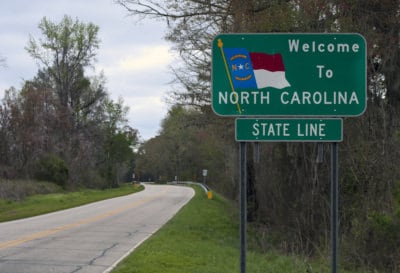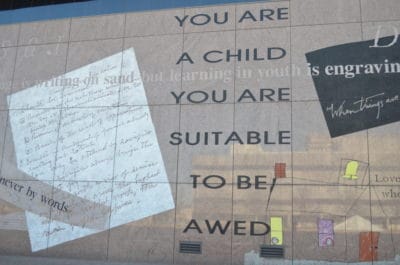The North Carolina Opportunity Scholarship Program (NC OSP) purports to serve marginalized students, such as those in poverty, but the NC OSP provisions ignore the plight of LGBTQ students. An April 2019 editorial by the Capitol Broadcasting Company noted that six of the top 14 OSP funding recipients engage in discriminatory admissions practices. This assertion of discrimination based on LGBTQ status and religion follows up a January 2017 article by the A.J. Fletcher Foundation that noted that several private schools’ student handbooks state that students can be denied admission or expelled based on their sexual activity, identity, or orientation.
No school should be allowed to engage in discrimination against students, especially schools that are receiving state and/or federal tax money. North Carolina must act to prevent current and future discrimination against LGBTQ students.
The Opportunity Scholarship Program only affords students federal protections against discrimination based upon race, color, or national origin. The OSP statute specifically states that legal protections exist “as that statute read on January 1, 2014” meaning that LGBTQ students are not protected. The statute did not indicate that changes to federal law would automatically bestow new protections for LGBTQ students if the federal government decided to make those changes. Given North Carolina’s history of discrimination against transgender people, North Carolina’s reputation as a state that is inclusive and supportive of the LGBTQ community has been tarnished.
In 2016, North Carolina signed House Bill 2 into law, also known as the Public Facilities Privacy & Security Act. The law stated that people had to use restrooms that aligned with their biological sex. Transgender people were barred from using the restroom that aligned with their gender identity and the law also overturned local legal protections for LGBTQ people throughout the state. This law treated transgender people as second class citizens and also spread the false narrative of transgender people as sexual predators or deviants.
Although the bathroom restrictions were partially repealed in 2017 by a replacement bill, the damage to North Carolina’s hospitable and inclusive reputation was complete. Critics of the 2017 replacement bill, House Bill 186, contend that LGBTQ people are still discriminated against despite the public optics of a full repeal of the controversial 2016 House Bill 2. If North Carolina wants to regain its standing as an accommodating place to work and live, the state must be proactive about protecting members of the LGBTQ community.
The General Assembly recently considered amending the Opportunity Scholarship Program to allow families up to 150% of the federal free and reduced lunch program to be eligible for the program. Since they have considered changing eligibility requirements for the scholarship program, they must also include provisions that bar participating voucher schools from engaging in discriminatory student enrollment practices. The General Assembly must adopt a policy that adds discrimination protections for students based on their LGBTQ status, special education classification, religion, and prior academic or behavior record.
This new policy would prevent participating private schools from engaging in discriminatory enrollment practices or remove them from the list of eligible opportunity scholarship vendors if discrimination persists. If the Opportunity Scholarship Program wants to truly serve the needs of marginalized student populations, they will add the aforementioned student groups to the class of students that are currently protected against discrimination.





